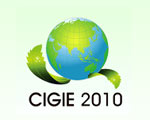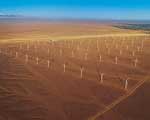China's auto production base steers to 'green' future
(Xinhua)
2010-07-23 11:39
|
|
CHANGCHUN - Visitors to an international automobile fair in Northeast China this year noticed a change taking place at the event: a greater number of hybrid and all-electric vehicles on display.
More than 30 models of all-electric buses, BEVs (battery electric vehicle) and new HEVs (hybrid electric vehicle) were on show at the 7th China Changchun International Automobile Fair, an eight-day event that ended Thursday.
"Only a handful of such vehicles were seen last year," said a visitor who identified himself as Liu.
To the big crowds of car enthusiasts in the exhibition hall, the new energy models were a major attraction.
An official with the automobile industrial development zone of Changchun, the host city of the fair, said local government is looking to cut energy emissions and create a "greener" city by producing and bringing more environment-friendly vehicles onto the road.
"Promoting new energy models and new car technologies at the fair is part of the government's drive to build a 'greener' city," said Li Xiangguo, director of the management committee of the development zone.
Changchun has long been known as the cradle of China's auto industry. In 1956, China produced its first self-made truck, the Jiefang, in Changchun at the First Automobile Works (FAW).
The city now is home to FAW Volkswagen Automotive Co Ltd, a joint operation by China's FAW and German auto giants Volkswagen and Audi.
With an annual output of up to 600,000 vehicles, the company is one of the biggest car manufacturers in China, now the world's biggest car market.
The annual output of electric and hybrid cars in Changchun accounts for six percent of China's total and the number of such automobiles are expected to exceed 200,000 units by 2015, Li said.
In 2009, Changchun was selected as one of the 20 cities to promote clean-energy vehicles for public transportation. Under the program, the city started promoting hybrid, electric, and energy-efficient vehicles for taxi, bus and other public orientated services.
In June, the central government introduced subsidies for electric and hybrid car-buyers in five cities. Changchun, together with Shanghai, Shenzhen, Hangzhou, Hefei, was targeted.
Under the program, buyers of all-electric vehicles in Changchun will receive a subsidy of up to 60,000 yuan ($8,850) while those who buy plug-in hybrid cars will receive a subsidy of up to 50,000 yuan.
Besides, the municipal government of Changchun is set to formulate a local subsidy plan that will give buyers more subsidies, in addition to those they receive from the central government, according to Li.
To popularize the use of energy-efficient vehicles, the city has planned to build 15 battery charge stations and a network of 5,000 battery charge poles, Li said, adding the timetable has not been fixed but their construction is expected to be complete in "a few years."
Meanwhile, the city has promised to take steps to encourage the use of energy-saving cars, includes promoting car and battery renting, recycling of old cars and used batteries, as well as bringing into line the technical standards for finished automobiles, power batteries, battery charge stations, according to a two-year plan mapped out by the municipal government in June.
"These government policies will give more incentives to car manufacturers and buyers, more all-electric buses will be produced and used and the environment will definitely improve." said Liu Yan,deputy general manager with the Changchun Huaao Automobile Manufacturing Co. Ltd.







